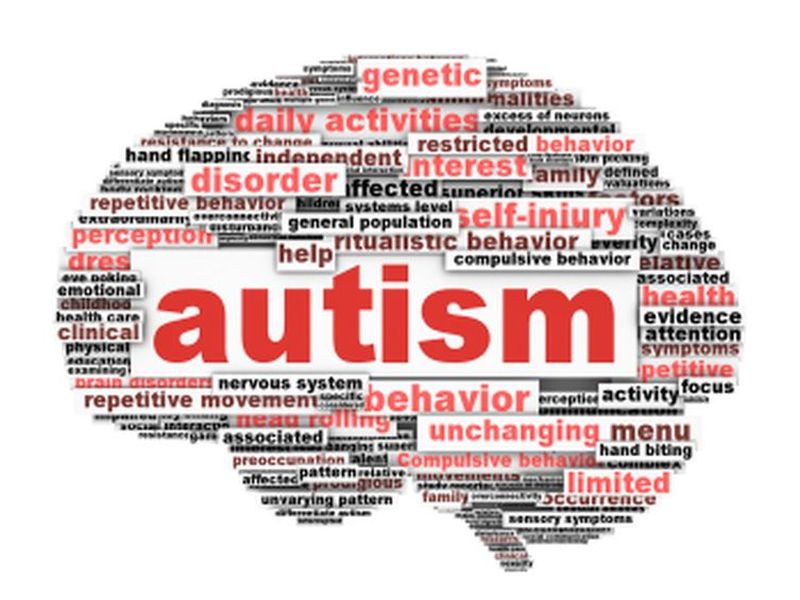Could Umbilical Cord Blood Help Ease Autism?
 By Amy Norton
By Amy Norton
HealthDay Reporter
TUESDAY, Might 19, 2020 (HealthDay Information) — A review tests umbilical cord blood as an autism procedure has identified hints of probable advantages for some children — but the scientists say much far more work is essential to get firmer answers.
The review, of one hundred eighty youngsters, identified that a one infusion of cord blood did not increase social or interaction skills throughout the group as a complete. But there had been optimistic symptoms in the subgroup of children who did not have mental impairments: Their interaction skills improved, on common, around the upcoming six months.
The results, released Might 19 in the Journal of Pediatrics, do not aid employing cord blood outdoors of a clinical demo, the scientists pressured.
“This just provides us some hopeful facts, and we’re setting up added research,” stated senior researcher Dr. Joanne Kurtzberg, a professor of pediatrics at Duke University College of Medicine, in Durham, N.C.
The basic principle guiding the procedure is dependent partly on lab research suggesting that selected cells in umbilical cord blood — named monocytes — can mood a sort of mind irritation witnessed in people today with autism.
It is not distinct that irritation is a lead to of autism indications. But there is “rather powerful evidence” of a romance with social interaction issues that mark the disorder, in accordance to Kurtzberg.
Past tiny research have identified no adverse aspect results from offering youngsters with autism an infusion of both their own cord blood (collected at delivery), or a donation from a cord blood financial institution.
But whether or not it has any results is another subject — and a hard one particular to review, Kurtzberg stated.
A standard issue is that autism conditions are intricate and varied, varying widely from one particular child to the upcoming.
Some youngsters have milder issues with socializing and communicating, while other people are profoundly afflicted — speaking very little, if at all, and having wrapped up in repetitive, obsessive behaviors. Some youngsters with autism have mental disabilities, while other people have common or earlier mentioned-common IQs.
In the most recent demo, the majority of the youngsters experienced some degree of mental incapacity — a more substantial selection than the scientists experienced predicted enrolling. It also turned out to have a substantial placebo effect, Kurtzberg stated: That is, parents of youngsters who truly obtained a placebo instead of cord blood continue to routinely documented enhancements in their kids’ conduct.
The scientists also studied a wide age assortment, from 2 to seven many years. And with younger youngsters, Kurtzberg stated, it is hard to know whether or not any progress in social or interaction skills is owing to a remedy or to natural progress.
“In the youthful youngsters, there was a substantial placebo effect,” she stated.
The Duke scientists have begun another review involving only children aged four to eight. That, nonetheless, has a draw back, because it is typically thought that the earlier an intervention can be accomplished for autism, the improved, Kurtzberg stated.
Dr. Andrew Adesman is main of developmental and behavioral pediatrics at Cohen Kid’s Health-related Center, in New Hyde Park, N.Y.
He recommended the scientists for stating what their results do not confirm.
“The final results from this review are discouraging in that there looks to be no gain for youngsters with [autism] who are reduced-functioning — and, maybe, modest advantages for youngsters with [autism] who are better-functioning,” Adesman stated.
That latter acquiring, he included, “would surely have to have to be replicated in a very properly-controlled stick to-up review.”
The demo associated one hundred eighty youngsters with autism who had been randomly assigned to one particular of a few groups: fifty six obtained an infusion of their own cord blood, sixty three an infusion from a genetically matched donor, and 61 obtained a placebo infusion.
Over-all, 12 youngsters experienced an allergic response to the infusion in four, it was significant, with indications like respiration issues and facial swelling.
As for advantages from the procedure, there had been no distinct results all round. But when the scientists centered on children without having mental disabilities, they noticed that those who’d obtained cord blood showed advancement in interaction skills, on common.
“There had been some who’d been nonverbal and became verbal — able to specific wants like, ‘I want milk,'” Kurtzberg stated. “There had been some who went from minimum verbal interaction to remaining able to have a discussion.”
Nonetheless, the final results are dependent on a tiny selection of youngsters. Likely forward, Adesman stated, it could be valuable to have a review involving numerous research centers, and a more substantial group of children without having mental incapacity.

Copyright © 2020 HealthDay. All rights reserved.
SLIDESHOW
Parenting: Master to Be a Improved Guardian
See Slideshow
References
Resources: Joanne Kurtzberg, M.D., professor, pediatrics, Duke University College of Medicine, Durham, N.C. Andrew Adesman, M.D., main, developmental and behavioral pediatrics, Cohen Kid’s Health-related Center, New Hyde Park, N.Y Might 19, 2020, Journal of Pediatrics, on-line

